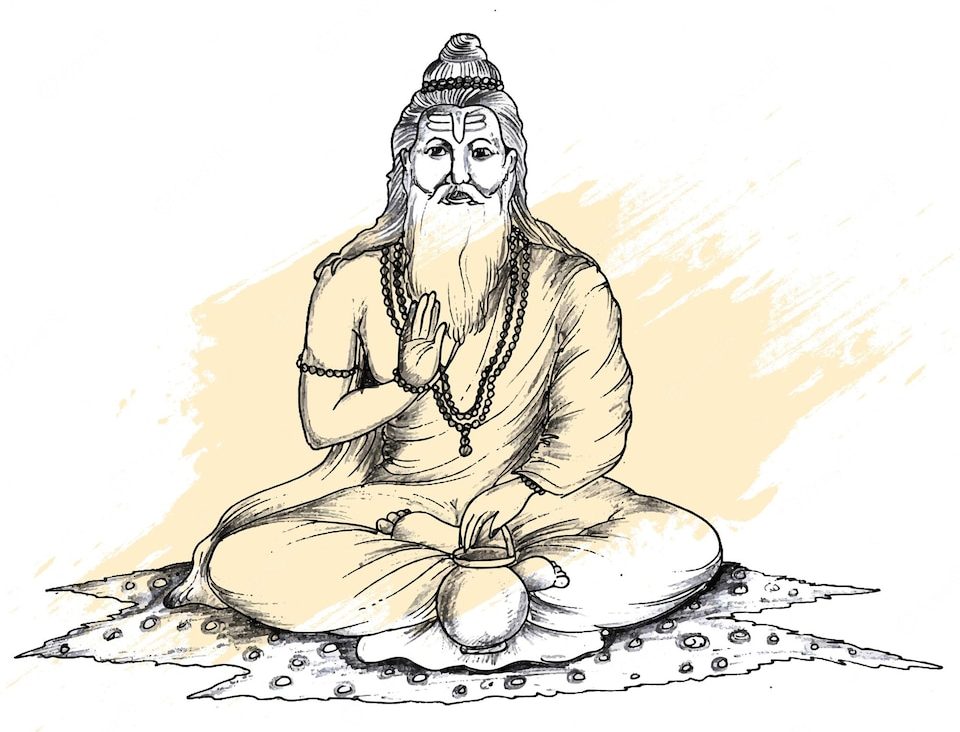
Maharishi Manu
The Progenitor of Human Beings and the Custodian of Social Order
Introduction:
Maharishi Manu, hailing from the ancient era, holds a significant position in Hindu mythology and cultural history. As the son of Lord Brahma, the creator of the universe, Maharishi Manu is revered as the progenitor of human beings. His contribution to Hindu culture is exemplified by his authorship of the Manusmriti, also known as the Laws of Manu. This sacred text provides guidance on moral, ethical, and social conduct, forming the foundation of societal order. This article delves into various aspects of Maharishi Manu’s life, including his early years and education, his career as a sage and teacher, his relationship with the gods, his disciples, his contributions to Hindu culture, his lasting legacy, and a conclusion summarizing his significance.
Early Life and Education:
Maharishi Manu was born in the ancient era as the son of Lord Brahma. From his birth, he possessed divine wisdom and innate knowledge. Raised in a sacred and enlightened environment, he received an extensive education from his father, Lord Brahma, and other enlightened sages. Maharishi Manu acquired a deep understanding of cosmic principles, morality, governance, and the intricacies of social order.
Career as a Sage and Teacher:
Maharishi Manu’s profound knowledge and wisdom led him to embark on a career as a sage and teacher. His teachings revolved around guiding individuals and society on the path of righteousness and ethical living. Maharishi Manu’s ashram became a renowned center of learning, attracting scholars, seekers, and kings seeking his guidance. His profound insights into the complexities of human existence and societal dynamics made him an esteemed figure in ancient India.
Relationship with Gods:
Maharishi Manu shared a close relationship with the gods, who admired and respected him for his wisdom and devotion. He engaged in dialogues and interactions with celestial beings, seeking knowledge and guidance from them. These interactions enriched his understanding of cosmic principles, moral conduct, and the divine order of the universe. Maharishi Manu’s conversations with the gods are reflected in the Manusmriti, where he imparts divine wisdom to humanity.
Other Disciples:
While Maharishi Manu is primarily known for his authorship of the Manusmriti, he also had disciples who learned from him and contributed to the dissemination of his teachings. These disciples imbibed his wisdom and played significant roles in the preservation and transmission of his knowledge. Though the names of his disciples are not widely mentioned, their adherence to his teachings and their subsequent impact on Hindu culture attest to the profound influence of Maharishi Manu’s lineage.
Contributions to Hindu Culture:
Maharishi Manu’s most notable contribution to Hindu culture is the Manusmriti, a sacred text that lays down the code of conduct and social order. It serves as a comprehensive guide for individual conduct, governance, and societal organization. The Manusmriti encompasses various aspects of life, including marriage, family, legal matters, ethics, and morality. It provides a framework for maintaining social harmony, preserving traditions, and upholding dharma (righteousness). Maharishi Manu’s teachings in the Manusmriti continue to shape Hindu culture, ethics, and social norms.
Legacy:
Maharishi Manu’s legacy extends beyond his own time, leaving a lasting impact on Hindu society and culture. The Manusmriti continues to be regarded as a significant text, guiding individuals and communities in matters of morality, ethics, and social conduct. Despite controversies and evolving interpretations, the Manusmriti remains a valuable source of insight into the principles that underpin Hindu social and cultural practices. Maharishi Manu’s legacy also underscores the importance of maintaining social order, upholding dharma, and fostering harmonious coexistence within society.
Books Written by Him:
Maharshi Manu is attributed to the ancient Indian text called the “Manusmriti” or “Laws of Manu.” Written around 200 BCE to 200 CE, it is a foundational legal and ethical code that encompasses social, religious, and moral principles of Hindu society. The book provides guidelines on dharma (duty/righteousness), social conduct, and governance, which were considered authoritative in traditional Hindu jurisprudence. Its content reflects the values and norms prevalent during its time and continues to be studied for insights into ancient Indian civilization and cultural practices.
Conclusion:
Maharishi Manu, the progenitor of human beings and the custodian of social order, occupies a significant place in Hindu mythology and cultural history. His authorship of the Manusmriti, a comprehensive guide to ethical conduct and social organization, showcases his deep understanding of human nature and societal dynamics. Maharishi Manu’s teachings continue to shape Hindu culture, providing a framework for moral living and the preservation of social harmony. His wisdom and contributions have had a profound and lasting impact on Hindu society, making him an iconic figure in the realms of philosophy, morality, and governance.
Editor – Kaalchakra Team
[ Note – Before Concluding anything as a Finale, Please Go through Original Scriptures of Vaidik Literature Written in Sanskrit and Also with Meaning of That time of Language. Because English is a Limited language to Explaining the Deeper Knowledge of Vaidik Kaal. ]
